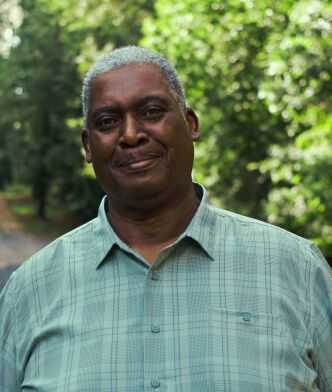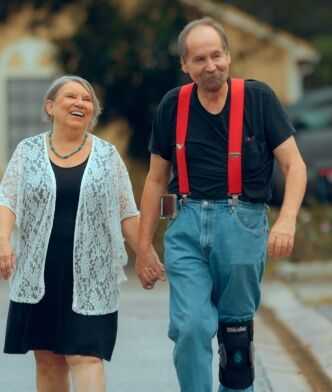Bad Weather Car Accidents
Bad Weather Car Accidents
- The Fee Is Free Unless You Win®.
- America's Largest Injury Law Firm™
- Protecting Families Since 1988
- 20 Billion+ Won
- 1,000+ Lawyers Nationwide
Free Case Evaluation
Porter Ranch Gas Leak
Jacob T. Rodgers v. City of Gainesville D/B/A Gainesville Regional Utilities
Estate of Frank Townsend v. RJ Reynolds, et al.
Morgan Stanley Data Security Litigation
Stephen Davis v. Levon Clark, Ricardo Williams, Marty Grifka and Derek Pak
McAdams v. Monier Lifetile, LLC
Coleman v. Martinez
Gold v. Lumber Liquidators
Clemmons, Patrick
Brink v. Ruiz

The attorneys featured above are licensed in Florida. For a full list of attorneys in your state please visit our attorney page.
Bad Weather Car Accidents
Bad weather conditions, including heavy snow and rainfall, high winds, poor visibility, and black ice, can endanger the most experienced driver regardless of caution. On average, we see about 1.2 million weather-related car accidents each year, according to the U.S. Department of Transportation Federal Highway Administration. Sadly, 16% of these accidents result in fatalities.
Undoubtedly, poor weather can play a major factor in car accidents. Nonetheless, drivers involved in bad-weather car accidents can still be held accountable because they owe other drivers a duty of care regardless of environmental circumstances. As such, Morgan and Morgan have worked to protect the rights of motorists who have been injured by another party through no fault of their own for over 35 years.
While you may feel that since weather played a big role, your choices are limited. However, that's not necessarily the case. You may have opportunities to recover compensation that justify consideration. As highly experienced car accident lawyers, we will share our insight regarding the legal options you have following an accident that may have been influenced by the weather.
Get answers to commonly asked questions about our legal services and learn how we may assist you with your case.
Morgan & Morgan
How Is Fault Determined in Bad Weather Car Accidents?
Courts, insurance companies, and lawyers work from the same table when trying to determine fault for bad-weather car accidents. Regardless of the weather, drivers are responsible for upholding a duty of care to ensure other motorists, pedestrians, and bicyclists don't come to harm from their actions. When the weather is poor, this duty is more important than ever, and drivers must adjust their behavior accordingly.
When determining fault, the involved parties (courts, insurance adjusters, and lawyers) review all aspects of the accident, including environmental factors, poor road conditions, and traffic. Still, even if the weather contributed to the accident, drivers can still be held accountable because they are responsible for the choices that got them into the situation.
For example, suppose someone decides to visit someone they are dating during a severe weather event and travels no faster than the speed limit but too fast for the weather conditions. Their car hydroplanes through a stop sign despite their best efforts to control the vehicle, but they end up crashing into drivers who have the right of way. When determining fault, an insurance adjuster might conclude that while weather played a role in the accident, if the driver had slowed down or not made the unnecessary trip, the accident wouldn't have happened, and thus it is their fault.
Why Is Determining Fault So Important in Car Accidents?
Determining fault is a crucial aspect of any car accident claim because the party who is at fault, or mostly at fault, will be the one that pays all or the majority of the expenses. Likewise, insurance adjusters use fault to determine the extent of the coverage for their own customers. For example, drivers who don't carry collision policies would not have their personal property damage covered if they were found at fault.
In some states, you may be barred from seeking compensation if you share more than 50% of the fault. Even worse, in a few states, you can't pursue compensation if you have any responsibility, even just 1%. While two parties can be at fault, if one person is driving too fast in bad weather on top of other lapses in judgment, they may be assigned a more substantial portion of the fault and subsequently must pay more for damages.
Since determining fault is a critical aspect of a personal injury case, using the most experienced car accident lawyers for your legal matter only makes sense. Morgan and Morgan Law Firm features some of the country's brightest and most qualified car accident attorneys. Your lawyer will have the skills and competency to sway opinions in your favor. If you did share in the fault for the accident, they have the qualifications to minimize your involvement so you can get the most for your claim.
How Can a Lawyer Help With Bad Weather Car Accidents?
So, we've gone over how vital fault is in a car accident because the party at fault is the one who pays. But the reason behind this comes down to negligence. Even though environmental conditions can make an accident more likely, that doesn't take away from the fact that drivers must act responsibly to ensure the safety of others in such settings. That means drivers who do not practice safe driving habits and forgo reasonable judgment are behaving negligently and thus liable to pay for damages.
Negligence is based on what a reasonable person would do under the same circumstances. So, in the instance of bad weather car accidents, reasonable drivers would make adjustments to accommodate the weather. Reasonable drivers would slow down when the pavement is wet or the roadways are otherwise adversely affected by the weather.
While any reputable insurance company would look into factors like this before determining fault, sometimes even the most perceptive insurance adjusters can miss something. A lawyer can make sure that every aspect of your accident is investigated. For example, we may examine the condition of the other driver's vehicle for signs of negligence.
A poorly maintained vehicle can absolutely increase the chances of a bad weather accident. Take, for instance, bald tires. Bald tires are incredibly dangerous in wet conditions like rain, snow, ice, and slush. A bald tire no longer has an adequate tread depth to channel water, which makes it easier to skid or hydroplane. Likewise, bald tires interfere with a vehicle's ability to brake, since tires provide the traction to enable braking. Other maintenance issues that can make a vehicle dangerous in bad weather are broken headlights and taillights, worn-out brakes, and dilapidated windshield wipers.A lawyer will also look at road conditions to establish negligence. While the weather can greatly affect a car accident, poor road conditions can add to or be the direct cause of a collision. For example, potholes, deteriorated pavement, or inadequate road signage could indicate the government's negligence and involvement in your accident. Municipalities and even the federal government have a duty to maintain roadways to ensure the public's safety. However, suppose you believe your accident involved some failure on the part of a government entity. In that case, contacting us as soon as possible is crucial. The statute of limitations for any legal actions against the government is strictly regulated and much shorter than if you were pursuing a private individual.
Additionally, we'll work to verify if the other driver's actions were reasonable for the conditions, such as driving at a sensible speed for the weather and with an appropriate amount of distance between them and other vehicles. We'll also look to see if there were any steps the other driver could have taken to avoid the accident. One last thing is to investigate whether the weather event was expected or if it were a sudden occurrence. That means that if the other driver was driving with dilapidated windshield wipers during hurricane season, they were negligent because, in all probability, they knew or should have known it could rain.
Lastly, some bad weather accidents may involve pedestrians and bicyclists. While all drivers have a duty to be careful of others on the road, pedestrians and bicyclists also have some responsibility to exercise care, especially in bad weather. If they don't, they may be considered negligent.
Regardless of the complexities, you can be assured that when you work with Morgan and Morgan, all possible related causes for poor weather accidents will be explored.
What Types of Weather Are the Most Dangerous for Driving?
Rain and wet pavement are the primary cause of accidents linked to the weather. That's because tires and brakes can lose their performance, and visibility is usually poor. Freezing rain makes the road even more treacherous because of ice.
The majority of Americans live in areas where snow and ice are an issue for a good portion of the year. Black ice is the most problematic because it's difficult to spot. Black ice is especially prevalent near bridges and overpasses because temperatures drop more quickly in elevated spaces. When driving in conditions that could result in black ice forming, it's best to slow down and check for tire traction.
High winds are likewise dangerous because of flying debris and the increased chance of larger vehicles losing control or rolling over. When high winds are coupled with other environmental hazards like rain, sleet, or snow, driving can be particularly perilous.
Cold weather travel isn't just dangerous because of the increased chance of a car accident. If you're traveling during cold weather and have car trouble, freezing temperatures can be life-threatening.
How to Avoid Bad Weather Car Accidents?
When snow, ice, slush, dust, rain, and wind are a factor in your travel, it's crucial to take extra precautions. It's also important to make sure your vehicle is prepared for environmental hazards. That means checking the tread on tires and switching to snow tires when appropriate. Examine windshield wipers and replace them if they look worn. If your brakes feel "mushy," get them fixed. Always clean snow and ice from your vehicle, and make sure windows are free from dirt so that your vision isn't impaired.
When you're in a poor visibility situation, like fog, heavy rain, or snowfall, turn your headlights on, but not the high beams, because you can blind other drivers. In the case of a dust storm, slow down and completely exit the road if you can. If you must pull over on the street, don't stop in a travel or emergency lane, and shut off all vehicle lights. Put the emergency brake on, but remove your foot from the brake, stay in the vehicle, and keep your seatbelt on.
One of the most important things you can do to ensure your safety and that of others is to slow down and keep extra space between you and the vehicle in front of you. It wouldn't matter if you weren't exceeding the speed limit in a weather-related car accident if you were driving too fast for the conditions. You could still be at fault for causing an accident. If you find yourself caught out in an unexpected storm, it might be a good choice to pull over and wait it out, preferably someplace off the roadway, like a parking lot.
Of course, the only foolproof way to avoid a bad weather car accident is to stay where you are until the weather improves. While it's not always possible, it would be best if you don't make any unnecessary trips.
Contact Morgan and Morgan
If you've been involved in a bad weather car accident, Morgan and Morgan are here to help. We will work hard to investigate all possible causes of the accident and hold the at-fault driver accountable. We want you to understand that you may have options yet to be considered. The only way to know for sure is to contact us today for a free case evaluation. We'll look at the circumstances of your accident, and if we decide we can be of help, you won't owe any upfront fees.
Instead, we work on a contingency fee basis, meaning that we only collect payment for our services if we successfully recover compensation on your behalf. Our fees are comparable to industry standards, but you'll have the power and resources of one of the most successful law firms in the country working for you at the same price. Don't delay. Reach out now to learn of your legal options.
How it works
It's easy to get started.
The Fee Is Free Unless You Win®.
Results may vary depending on your particular facts and legal circumstances.
Step 1
Submit
your claimWith a free case evaluation, submitting your case is easy with Morgan & Morgan.
Step 2
We take
actionOur dedicated team gets to work investigating your claim.
Step 3
We fight
for youIf we take on the case, our team fights to get you the results you deserve.






